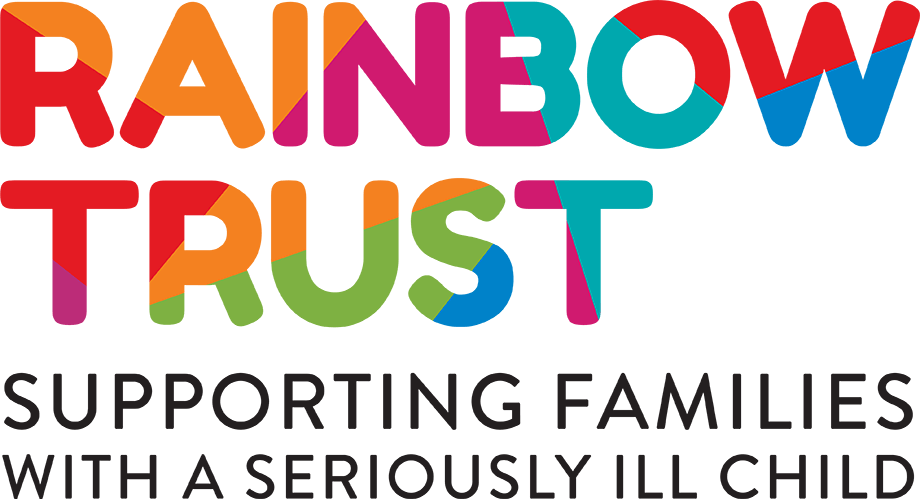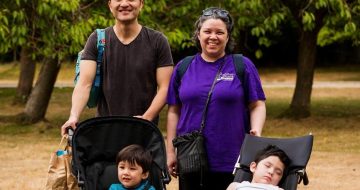Date published: 29 September 2022 by Digital Team
The increased pressures on families caring for a life-threatened or terminally ill child during the current cost-of-living crisis are revealed in a survey conducted by Rainbow Trust Children’s Charity.
In the latest survey of families it supports*, Rainbow Trust found that over 90% of respondents said their financial situation is now worse due to the cost-of-living increase, with 32% saying they are now much worse off. Almost 74% of families said this negative financial impact is greater due to having a seriously ill child.
It is clear from the survey results that caring for a seriously ill child whilst the cost-of-living continues to rise, exacerbates an already difficult situation for families. Almost two thirds (62.5%) of families said the cost-of-living crisis means there is less money for essentials like food, 61% say the rise in the cost of travelling to hospital is impacting them negatively and almost 20% say running life-saving equipment at home essential for their child’s illness is also affecting their finances.
The Yagi family from Chiswick, whose six-year-old son Joe has a life-threatening condition called Dravet syndrome, is feeling the immense financial pressure of the cost-of-living crisis. Joe’s condition means that heat exacerbates his seizures, so running air conditioning during the summer is vital, but significantly increases the family’s monthly bills.
Mum, Emily Palmer, explains “Joe suffers from seizures several times a week and since his condition means he is very very sensitive to heat, it is crucial that we keep him at a stable and comfortable temperature. To reduce the occurrence of seizures during the night, he sleeps in a low stimulation bed which is a bit like a tent making it even warmer thanks to lack of air circulation. We need to keep the air conditioning on most of the time as a result, even on cooler days, since the risk of increased seizures is so high. Keeping the temperature down helps my anxiety too. If I am worried that it is too warm, I won’t sleep. I manage on about three or four hours of sleep a night but if I am worried about Joe having a seizure in the night even this small amount of sleep is disrupted.
“Joanne, our Rainbow Trust Family Support Worker is wonderful and helps with our emotional needs and mental health, support which is difficult to find from other places as friends and family struggle to understand the reality of our situation. We dearly wish she could visit more often since Joe’s health permeates all aspects of our life and the lack of sleep means less energy for both Joe and his younger brother Tad. Joanne allows us a little bit of respite so we can recharge our batteries to help us maintain our business, advocate for Joe and also ensure Tad is stimulated and cared for appropriately.”
The survey also showed that the impact of the increase in cost of living has been accentuated by the pandemic over the past two years. Over 73% of families surveyed say their mental health is now worse than it was at the start of 2020, with a third (33.33%) saying it is much worse. Individual comments from respondents ranged from ‘I feel completely isolated’, ‘we worry about our son getting covid and dying as well as not being able to pay bills’, ‘I have no idea how to control things and help’ and ‘I can’t get out as much as I did and my own health has deteriorated’ to ‘everything is a fight when you have a sick child’ demonstrating that for families caring for a seriously ill child it is harder to put the worry of COVID behind them.
Emily continues, “The impact of the pandemic, coupled with the rise in the cost of living has increased the pressure we are under. I am under a lot of stress and we live in a constant state of flight or fight due to Joe’s frequent and unpredictable seizures. In the long summer holidays Joe became bored so returning to school has been good – particularly as this allows me and my husband to work. We work from home which is essential to allow us to juggle Joe’s needs with earning an income, but this also means the rising cost of energy has a significant impact on our finances. Joe has a special diet and the cost of this has also increased a lot recently. The cost of travelling to hospital has risen and we are definitely finding it more difficult to meet our household bills.”
Zillah Bingley, Rainbow Trust Chief Executive says, “Our latest survey has highlighted how the needs of families with a seriously ill child impact family finances significantly. Whether it is running essential electrical equipment such as ventilators, hoists, air conditioning units or heart monitors 24 hours a day, using the washing machine more frequently due to the need for more regular changes of bedding or clothes, or needing to drive as taking public transport with a seriously unwell child is not possible. For these families, their spiralling costs are not an option, they are an absolute necessity.
“The bleak impact of the cost-of-living crisis on families with a life-threatened or terminally ill child means that families do not know how they will pay the bills, that medical appointments are being missed due to the cost of travel and one family told us they are having to choose between reducing therapy for their sick child which stops his deterioration or basic food and living items.
“This survey shows how much more families caring for a seriously ill child have been, and continue to be, negatively affected by the COVID pandemic. On top of that now facing the current cost-of-living crisis and double digit inflation is hugely concerning and a very distressing situation for many of them. The support our Rainbow Trust Family Support Workers provide to families is vital and for 17% of respondents we are their only source of regular support at this challenging time.”




